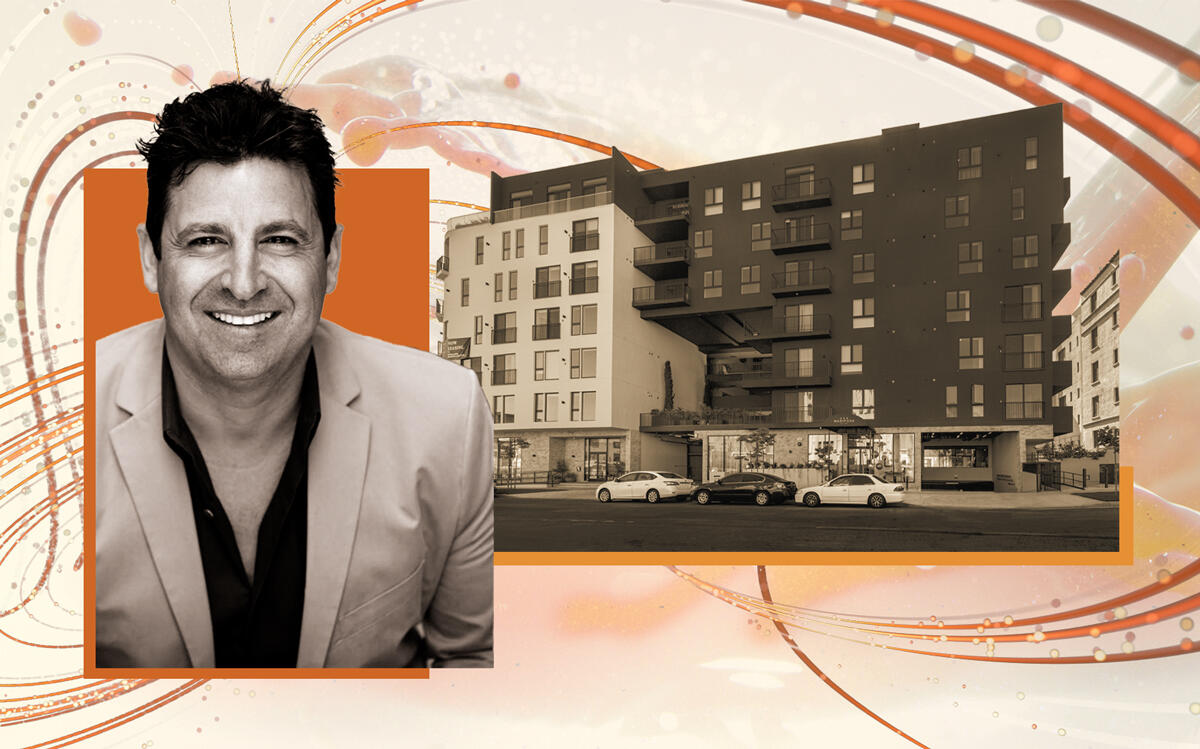It’s no secret that Israelis have had a significant hand in the shape-shifting that characterizes the streetscape of Los Angeles.
The lineup ranges from huge names such as CIM Group to visionaries like Beny Alagem, who one-upped his own Beverly Hilton with a Waldorf Astoria. And entrepreneurs in the mold of Naty Saidoff, who transitioned from the diamond business and now might collect as much rent in Downtown L.A. as anyone.
Israelis are all over L.A.’s real estate market—no news there.
But what might the Israel Defense Force have to do with it?
Something fundamental—if indirect—courtesy of Gidi Cohen.
Cohen is the founder and chief executive of Woodland Hills-based CGI+. His firm doesn’t have the heft of CIM, nor does it have a luxury hotel for a calling card. But it has achieved standing among Israeli influencers on L.A.’s scene thanks in no small part to the links it has forged with individuals, family offices and other investors who cast their lot with the CGI+ brand.
It’s the concept of brand that brings us back to the IDF.
Cohen is a veteran of the Israeli military – he served in the sort of high-stakes special unit where trust is everything, and when he left the service, he carried away more than camaraderie.
These days, Cohen shows touches of crow’s feet around his eyes. His open-collar and designer jeans say California cool rather than combat-ready. Even the personal discipline he retains from his military training has been recast for capitalist life — he tells me emphatically that the tortilla soup at the Hotel Bel-Air is the best in the city while politely asking the waiter to hold the sour cream.
Cohen, it seems, knows how to sort out what he wants in a brand. And he seems determined to apply branding to the ultimate package of our society—the personal residence. The effort covers ground-up and renovation projects from Manhattan to Atlanta, New Jersey to Florida, Los Angeles to Oakland. Some are solid, stylish and safe complexes in the middle of metro markets, others are renovations such as the Villa Carlotta in Hollywood, a cool-luxe boutique for extended stays.
Cohen sees each as more than one project with singular potential. Call it the 3 percent solution. That’s how much extra CGI+ figures it gets in rent based on the brand it has established. The firm also maintains that brand has helped it keep tenant turnover to a fraction of the 35 percent that is standard in L.A.
That’s a lot to take in over a lunch break with a fellow who is charmingly disarming in the way of real estate developers.
Enough to bear a real-life check, which is what I made a few days later without notice or escort at Mariposa, a recently opened 122-unit apartment complex by CGI+ at 3rd Street and Mariposa Avenue, just about the geographic heart of L.A. A sign touting the nascent Little Bangladesh neighborhood is a few blocks to the east. Right across the street a single-story commercial building hosts a doctor who advertises in Spanish and a pharmacy that bills the hangul characters of Korean. Up the street is a row of smaller apartment buildings—three or four stories, maybe 20 to 40 units each—that would be apt background for Jack Nicholson’s character in “Chinatown.”
This is one of those corners where the shape of L.A.’s streetscape is shifting.
Mariposa is modern, with fully wired units for the digitally driven, commons areas that look as though they came out of a Gen Z blog, and a rooftop deck that feels just right in the age of pandemic. It’s in tune with the times in the housing-constrained city as well as the YIMBY sentiments that are common among the young and upwardly mobile in L.A. — 17 of the units at Mariposa—or 14 percent—are set aside as affordable.
The complex isn’t alone in hitting those marks—there is a general sensibility to upscale apartments coming to market in the city. But it was outside, as I walked away from the place, where the CGI+ brand image lived up to Cohen’s rhetoric.
It happened on the corner of 3rd and Mariposa, where the building greets westbound traffic with a big LED screen showing ads. Underneath the screen, on lovely brick work, someone had scrawled foul graffiti.
It’s the sort of act that raises a basic question that lots of Angelenos increasingly wonder but seldom say aloud: Can’t this corner of our city have nice things?
It was about 10 a.m. on a midweek morning, and CGI+ had deployed a uniformed member of the Mariposa maintenance staff who was nearly finished with the arduous task of scrubbing off the graffiti.
I stopped to chat and the maintenance worker filled me in. The tagger had struck at about 8 a.m., a resident had gotten a picture of the perpetrator, the mark would be completely off the buildings in another few minutes, and the vandal would thus be deprived of the pleasure of driving by to admire his or her handiwork.
Yes, was the answer from CGI+, this neighborhood can have nice things.
Keep an eye on that corner—and that brand.
